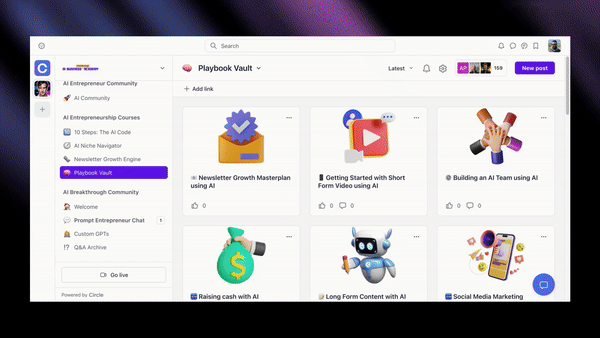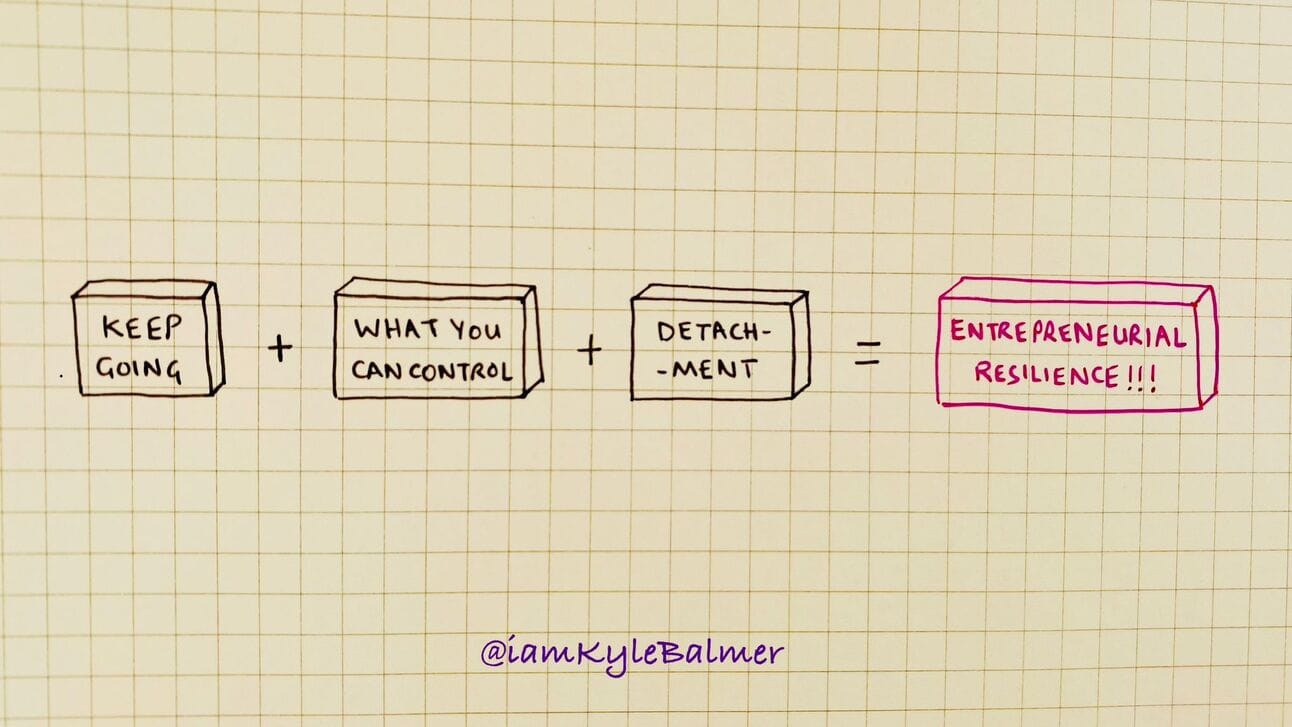Introduction
Over the last two Parts I’ve talked about how failure is part of the process.
We need to fail to progress. It’s part of learning and thus unavoidable.
However, this doesn’t make failure feel any better.
It still sucks!
In this Part I want to talk a little about how you prep yourself for the knocks and blows you’ll take as an entrepreneur.
But first a word from our sponsor (me):
Are you new here? You’ve missed a lot.

Since launching the ‘Prompt Entrepreneur’ newsletter I’ve written 25+ AI Business Playbooks.
Covering key business functions: audience building, tribe nurturing, content creating, offer structuring and empire building.
Everything you need to start your dream online business using the mind blowing power of AI.
Ready to catch up?
Get access to my AI Playbook Vault now. (Includes a limited time loyal reader offer).
Want to advertise here? Get started here.
Let’s get started:
Mental Tweaks

Let’s cover a few mental adjustments you can make that’ll help you weather failures better. More failures mean more learning. But only if you keep pushing ahead after a failure! We can’t let a blow knock us down and out for good.
We’ll look at:
- Stoicism and control
- You are not your idea
Focus on what you can control
Stoicism is an ancient philosophy that has seen a comeback in recent times.
The basic lesson of Stoicism is to not worry about what you cannot control. You train your mind simply not to react.
The other day I flew to Switzerland to deliver a training.
I was set to be on stage at 1:30PM.
My flight was half an hour late. Not ideal.
I rushed off the plane in Geneva and slammed immediately into the mother of all queues:

The electronic passport gates were all offline and everyone was being funnelled through 2 (very slow!) passport control officials.
I was going to be late. Very late.
Years ago I would have panicked. Got worked up and upset. Thought the world was ending.
But…this situation wasn’t under my control.
The flight was late: sure. There was a queue: sure.
Those were the facts of the situation. I had zero control over those.
What I did have control over was how I decided to react.
I used my time in the queue to:
- inform the company of my ETA
- rework the presentation to scoop out 30 minutes
- work out that I could record those 30 minutes later and send over after the presentation
Panicking about the delay would have got me nowhere. It’s out of control. And I would have turned up to speak in a bad frame of mind.
But reacting to the delay and working out next steps? – that’s valuable.
Same with all business.
If something is out of your control – stop sweating it.
The fix here: focus purely on what you can control. You next steps. Your plan. How you react to crises. How you move through difficulties. This is all controllable.
You will hit challenges in business. Lots of them. Stuff will fail. And you need to roll with it.
This is a skill that can be learned. Look into Stoicism. Look into mindfulness. These will guide you.
And expose yourself more to risk and failure in order to practice. Remember to keep those failures small and manageable as we discussed in the last Part.
Detachment
You are not your idea.
If your business idea fails this does not mean that you are a failure.
A lot of us get so into our business idea and how great it is that we begin to identify with it.
Absolutely you need to be excited about it. Hell, if you aren’t then you won’t be able to convince anyone else to be!
But you need to make sure you don’t dump your ego into your idea. The risk of doing so is that if your business idea fails (and it probably will – look at all my failed ideas) then it’s easy to see yourself as a failure.
But your idea is not you. It’s just something you’ve created. And the first passes will be crap.
The best way to avoid over-identifying is simply to have lots of ideas. Then you can’t pour your body and soul into only one of them. You have other ideas ready to go if this particular business doesn’t work, or doesn’t work how you expected it to.
A side issue here is the fact that your business ideas aren’t worth much. First time entrepreneurs in particular tend to massively overvalue their ideas. The idea itself is worthless – it’s only the execution that matters.